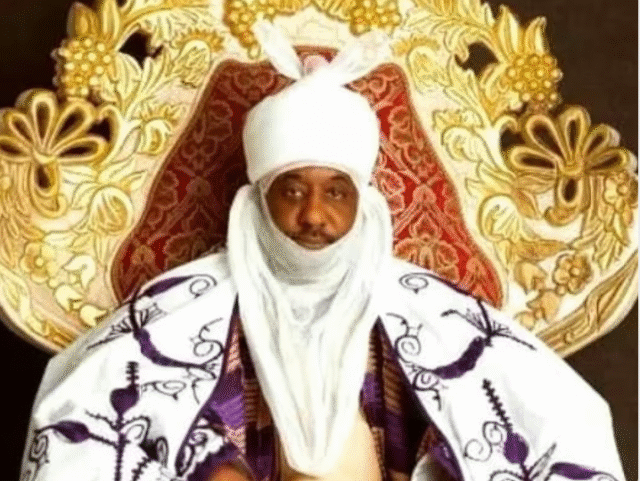The reality of poverty in A powerful and sobering message was delivered at an event hnoring Governor Amichi.
The speaker, a former Central Bank governor Sanusi Lamido, began by congratulating the governor but quickly shifted to a piercing examination of Nigeria’s poverty crisis—one that challenges the conscience of the nation’s elite.
“The reality about poverty in Nigeria is that many of the elite really do not even know what poverty is,” he stated. For years, economic reports have cited grim statistics—millions living on less than $1 a day, multidimensional poverty rates soaring—but these figures remain abstract until one “looks into the eyes of poverty.”
Recalling a life-changing encounter, he admitted, “I did not know poverty until I became an emir.” The harsh truth, he emphasized, is that urban poverty in cities like Kano or Lagos pales in comparison to the deprivation in rural villages where children attend roofless schools, families drink contaminated water, and malnutrition is rampant.
The speech took a deeper turn as he posed a fundamental question to Nigeria’s leaders—political, economic, and social: “Do we actually love the people, or do we just love ruling over them?”
Love for Nigeria, he argued, is meaningless unless it translates to tangible care for its citizens. He recounted a telling moment when a World Bank president met ordinary Nigerians, and a man from Kogi highlighted the absurdity of Abuja’s lavish bridges spanning dry land while his village lacked a single bridge over a life-threatening river.
“We built overheads and underpasses for ourselves… Meanwhile, people cannot come out from their village to reach a hospital,” he lamented.
The consequences of this neglect are deadly. Floods claim lives, inflation erodes livelihoods, and insecurity festers—yet leaders act as though crisis looms in the future. “Wake up,” he urged. “We are already in crisis.” The question is no longer about prevention but survival: How do we get out?
His closing warning—”If I speak for five more minutes, there’ll be a very bad headline”—hinted at the explosive frustration many Nigerians feel.
Yet, his message was clear: leadership must be rooted in love, not power. Until the elite confront the raw reality of suffering, statistics will remain numbers, and progress, an illusion. The time for reckoning is now.











